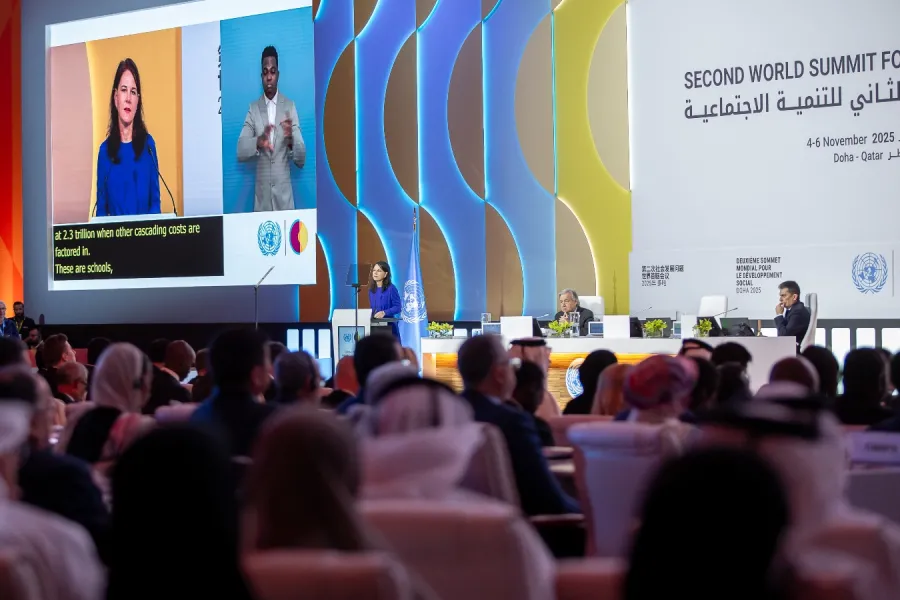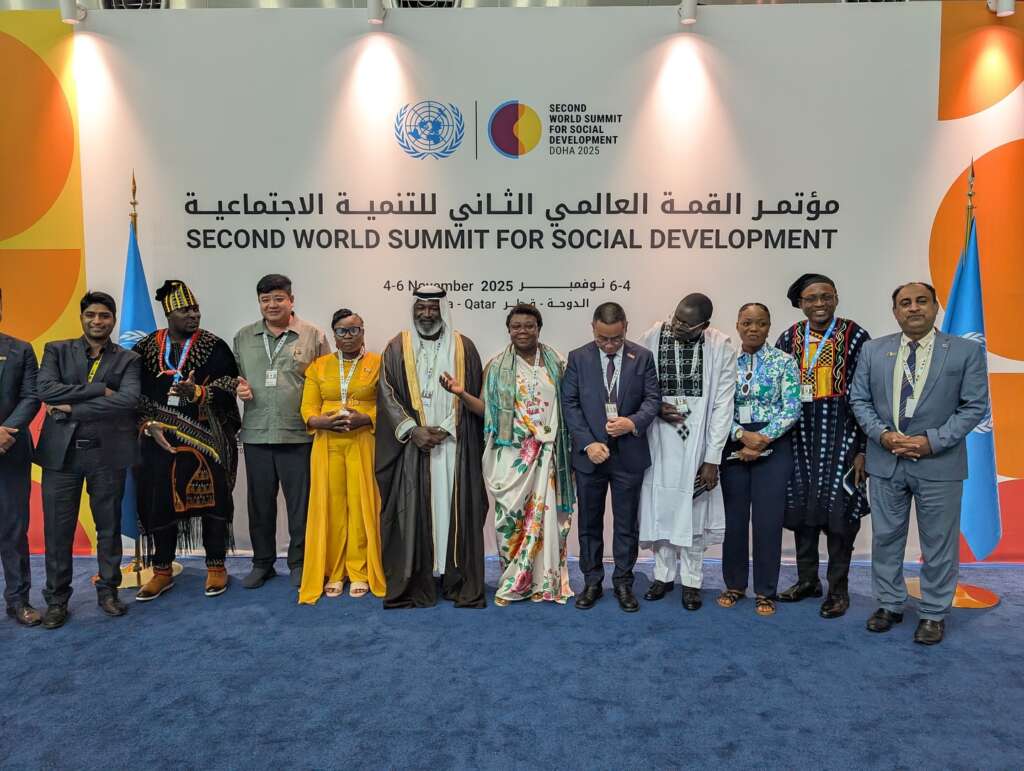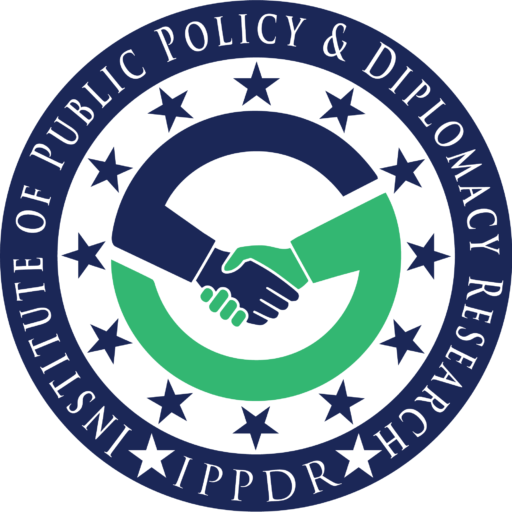Second World Summit for Social Development -Doha, Qatar
The Second World Summit for Social Development took place on 4 – 6 November 2025, Doha, Qatar culminating in the adoption of the Doha Political Declaration. The summit built upon three decades of global dialogue and commitment following the first summit held in Copenhagen in 1995.
Delegates, heads of state, policymakers, and development actors from across the world gathered to discuss how globalisation, emerging vulnerabilities, and evolving social fabrics had shaped people-centered policies and national development trajectories.

The event served as a pivotal moment for reaffirming global dedication to inclusive and sustainable social progress.
Historical Context and Global Commitments
Thirty years after the landmark Copenhagen Summit, the world returned to evaluate progress and address persistent gaps in social development.
The 1995 summit had placed people at the center of global development strategies, and the 2025 summit revisits these commitments in light of current global realities. Nations reflected on how socioeconomic shifts, technological disruption, and the climate crisis had reshaped their capacity to uphold equity, justice, and social inclusion.
The Doha Summit reaffirmed that social development remains a cornerstone of global stability and prosperity, calling for renewed commitments to actions, not merely statements.
Alignment With Humanitarian Focus Foundation’s Mission
The themes of the summit strongly aligned with the mission of the Humanitarian Focus Foundation (HFF). HFF has long been committed to promoting women’s empowerment, expanding access to education, and ensuring equality and inclusiveness across communities.
Throughout the summit, these priorities were echoed in discussions that emphasized lifelong learning, leadership development, economic resilience, and sustainable development.
The Foundation continued to champion these goals by offering Human Rights and Sustainable Development Goals courses that promote community empowerment and build local capacity for long-term success. The summit validated the importance of these initiatives as part of the global social development agenda.
National Submissions and Global Policy Dialogue
During the plenary sessions, countries presented national reports detailing the state of social development within their respective territories.
Heads of state, dignitaries, and country representatives outlined progress made, persistent challenges encountered, and strategies employed to advance inclusive development. Key issues such as poverty reduction, social protection systems, gender equality, and access to essential services were examined with a view to fostering global cooperation.
The dialogue demonstrated that while progress had been achieved, disparities remained, especially for marginalised populations and nations facing compounded crises.
They highlighted the importance of human capital development as a catalyst for inclusive growth and social resilience. Their interventions reinforced the need to prioritize women, youth, children, and persons with disabilities in national and international development frameworks.

Humanitarian Focus Foundation and IPPDR were represented by Nakabugo Irene of Uganda , Blessing Slobert of Liberia and Arsene Romaric Tatsazeu Kenfack, who represented the Global South, ensuring that young leaders and emerging professionals were reflected in policy discussions.
Hospitality and Support From the State of Qatar
The delegation and global participants expressed sincere gratitude to the Amir of Qatar and the Government for the outstanding hospitality offered throughout the summit. Qatar’s support contributed significantly to the smooth coordination of sessions, delegation exchanges, and high-level dialogues. The host country’s commitment to global cooperation and development diplomacy strengthened the impact and success of the summit.
Emerging Themes: Resilience, Partnerships, and Global Realities
As discussions progressed, several emerging themes shaped the direction of the summit. Delegates underscored the urgency of building resilience in the face of geopolitical tensions, economic uncertainty, humanitarian crises, and climate-induced challenges.
Strategic partnerships between governments, civil society, youth networks, and the private sector were emphasized as essential to tackling global inequalities. The evolving global landscape reinforced the need for inclusive systems, equitable access to resources, and community-centered interventions that support long-term stability.
Innovation and the Future of Social Development
Innovation was repeatedly identified as a transformative pathway toward inclusive growth. Delegates called for the development of accessible digital economies that enhance human productivity, particularly through investments that focus on youth.
With rapid technological changes, the summit recognized the need for reliable accountability systems to ensure that digital solutions strengthen, not marginalize, vulnerable communities. The integration of technology in education, social services, and economic development emerged as a core strategy for future resilience and sustainable social progress.
Renewed Commitment to People-Centered Development
The summit reaffirmed people-centered development as the foundation of social progress. Leaders asserted that sustainable development must prioritize individuals and communities rather than abstract economic indicators.
By primarily focusing on human capital development, equitable access to opportunities, and inclusive policy frameworks, nations are committed to shaping societies where every person can thrive. The Doha Political Declaration captured these renewed commitments, urging countries to translate their pledges into actionable programs and measurable outcomes.
Upholding Human Rights, Addressing the Climate Crisis, and Advancing Social Justice
Delegates renewed the commitments first made in Copenhagen by reinforcing their dedication to human rights protection, climate crisis mitigation, and the advancement of social justice. The summit acknowledged that the fight against inequality, discrimination, and environmental degradation remained far from complete.
As such, global leaders emphasized that meaningful change requires action-oriented strategies rather than rhetoric. The spirit of the summit reiterated that while statements may inspire, only sustained commitment and collective action have the power to transform lives.
Conclusion
The Second World Summit for Social Development served as a landmark platform for global recommitment to inclusive, equitable, and sustainable development. Through shared learning, renewed pledges, and collaborative frameworks, the summit strengthened international resolve to build resilient societies that uphold dignity, justice, and opportunity for all.
As nations move forward with the Doha Political Declaration, the world stands poised to translate commitments into concrete actions that shape a more just and inclusive future.

